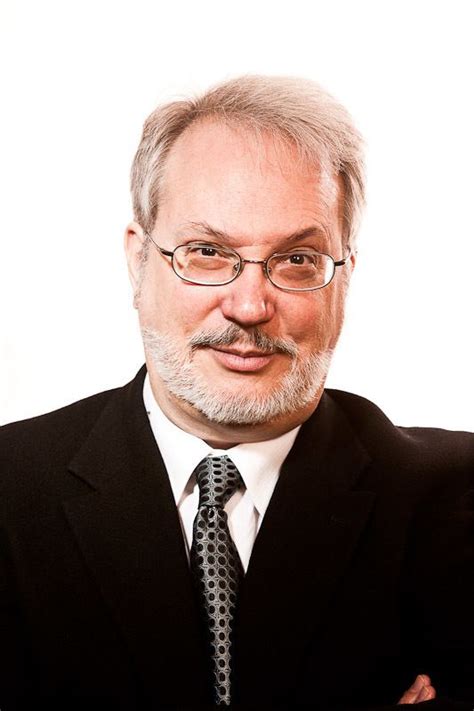A Quote by J. Budziszewski
To say that we cannot know anything about God is to say something about God; it is to say that if there is a God, he is unknowable. But in that case, he is not entirely unknowable, for the agnostic certainly thinks that we can know one thing about him: That nothing else can be known about him.
Related Quotes
Wouldn't it be wonderful if we had a world where everybody said, 'We don't know?' The fact is that you're surrounded -God and you don't see God, because you KNOW ABOUT God. The final barrier to the vision of God is your God concept. You miss God because you think you know. The highest knowledge of God is to know God as unknowable. All revelations, however divine, are never any more than a finger pointing at the moon. As we say in the East, 'When the sage points to the moon, all the idiot sees is the finger'.
In a very real sense my science does inform my knowledge of God. If you would allow me to say that we never know God, because if I claim that I know God, I know something other than God, because God is not knowable, he is unknowable. So we have to approach it in that sense first, that my knowledge of God is always limited.
Surely we cannot take an open question like the supernatural and shut it with a bang, turning the key of the madhouse on all the mystics of history. You cannot take the region of the unknown and calmly say that, though you know nothing about it, you know all the gates are locked. We do not know enough about the unknown to know that it is unknowable.
I have good idea, for if you meet some person from different religion and he want to make argument about God. My idea is, you listen to everything this man say about God. Never argue about God with him. Best thing to say is, 'I agree with you.' Then you go home, pray what you want. This is my idea for people to have peace about religion.
You know, on the spectrum of religious belief, there is atheism - these are people that don't believe. There's theism - these are the believers and agnostics say it's beyond comprehension that the whole issue of God us unknowable. You might be interested to know that perhaps the greatest mind of the 20th century Einstein, the one time that he actually used one of these appellations was in a letter about five years before he died and he referred to himself as an agnostic.
It is God who gives us the spirit of worship (Psalm 133:3), and it is what we know of God that produces this spirit of worship. We might say that worship is simply theology, doctrine, what we think about God, going into top gear! Instead of merely thinking about Him, we tell Him, in prayer and praise and song, how great and glorious we believe Him to be!
You hear a lot about God these days: God, the beneficent; God, the all-great; God, the Almighty; God, the most powerful; God, the giver of life; God, the creator of death. I mean, we're hearing about God all the time, so we better learn how to deal with it. But if we know anything about God, God is arbitrary.
We may have created this projection of what God should be, as this judge or test, but the fact is, the only way we know about God is by knowing ourselves in some way. So God must be in ourselves-you can't deny that. If you say that God is somewhere else, which is what a lot of religions say, I just can't deal with it. I guess it's the difference between Buddhism, Christianity, and Judaism, or something.
If nothing that can be seen can either be God or represent Him to us as He is, then to find God we must pass beyond everything that can be seen and enter into darkness. Since nothing that can be heard is God, to find Him we must enter into silence. Since God cannot be imagined, anything our imagination tells us about Him is ultimately a lie and therefore we cannot know Him as He really is unless we pass beyond everything that can be imagined and enter into an obscurity without images and without the likeness of any created thing.
The Buddhists say there are 149 ways to God. I'm not looking for God, only for myself, and that is far more complicated. God has had a great deal written about Him; nothing has been written about me. God is bigger, like my mother, easier to find, even in the dark. I could be anywhere, and since I can't describe myself I can't ask for help.
Religion and science have nothing to do with each other, they're about different things, science is about the way the world works and religion is about [...] miracles. [...] And in any case, if you ask most ordinary people in church or in a mosque why they believe, it's almost certainly got something to do with the belief that God does wonderful things, that God intervenes, that God heals the sick, that God answers prayers, God forgives sins.


































